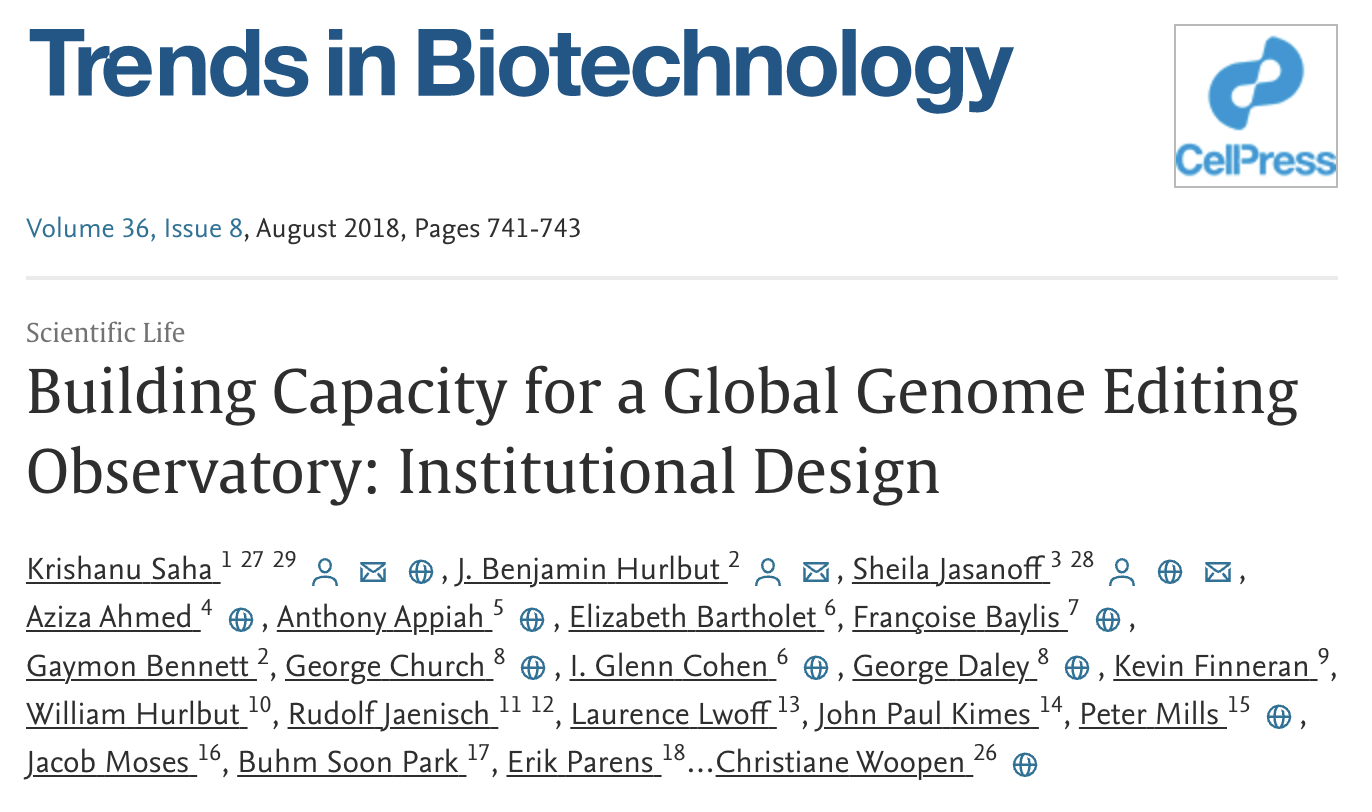

The Observatory initiative grew out of a meeting entitled Editorial Aspirations: Human Integrity at the Frontiers of Biology held at Harvard in April, 2017. It drew together a diverse group of international leaders, including scientists who made fundamental contributions to the development of CRISPR, the former chair of the German National Ethics Council, a member of the Catholic Church’s Congregation for the Doctrine of the Faith, the director of bioethics at the World Health Organization, the chair of the secretariat on Biomedicine and Human Rights at the Council of Europe, and numerous others.
At that meeting, a consensus emerged that dominant approaches to evaluating the meaning of human genome editing and related technologies were informed by (a) an overly narrow range of approaches to issues of human identity, integrity and dignity as they have taken shape in different national, legal, cultural, and religious traditions; and (b) inadequate engagement across social and intellectual divisions (e.g. secular/religious, expert/public) which tend to be enforced in an exclusionary rather than inclusive mode.
Following that meeting, Sheila Jasanoff and J. Benjamin Hurlbut published a commentary in Nature describing these deficits and calling for the creation of a Global Observatory for Genome Editing as a “new type of infrastructure… to promote a richer, more complex conversation — one that does not originate from scientific research agendas.”
In parallel, Jasanoff, Krishanu Saha, and Hurlbut led the formulation of a pair of consensus statements, one on conceptual challenges and this one on institutional design, signed by nearly all of the participants in the Editorial Aspirations meeting and published in Trends in Biotechnology in 2018.
The Global Observatory for Genome Editing launched in September 2020 with Jasanoff, Hurlbut, and Saha as directors.